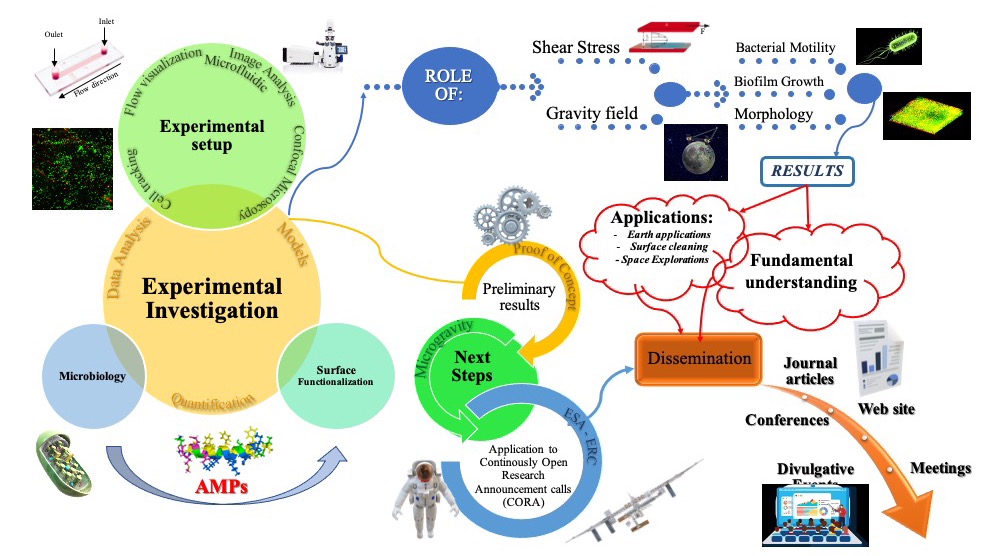There is evidence of biofilm on ISS, leading to biofouling and human infections[1-2]. External conditions such as chemical and mechanical stimuli (e.g. chemotaxis, flow, pressure, micro/hyper-gravity) play a key role in bacterial activity, growth, motility, gene expression, and biofilm formation, by affecting virulence, bacterial resistance and biofilm morphology[3-10].Despite the relevance, the topic has been poorly investigated[11-12]. This project is aimed at studying the role of mechanical stress on bacterial behavior and biofilm formation in water. The results will help control biofilm formation in space conditions, with a possible impact on Earth applications as well, e.g., surface cleaning and functionalization to control biofilm formation. Species found or studied on the ISS such as Pseudomonas, and B. subtilis[13] will be considered. Flow-visualization will be used to quantify bacterial swimming using motility models from the literature[14]. Surface physical and chemical (e.g. using polypeptides4) functionalization on biofilm formation will be investigated by advanced microscopy. This project proposal is developed under the umbrella of ESA Topical Team “Biofilm”. Strong interactions are expected with two other projects proposed by other members of the TT on strictly related topics (biofilm wetting, and flow cells engineering: Prof. Karapantsios; gene expression and advanced microscopy: Prof. Briandet). External support from scientific (cell-surface adhesion: CNRS Lyon), and industrial (aircraft cabins maintenance: ATITECH, Napoli) partners is also planned. The project will last 3 years: the first two will provide proof of concept for a second phase (last year) where the study will be performed in simulated gravity-altered conditions through ESA ground-based facilities (such as centrifuges). The last step will include future proposal submissions to ESA’s Continuously Open Research Announcements, in partnership with other TT members.

